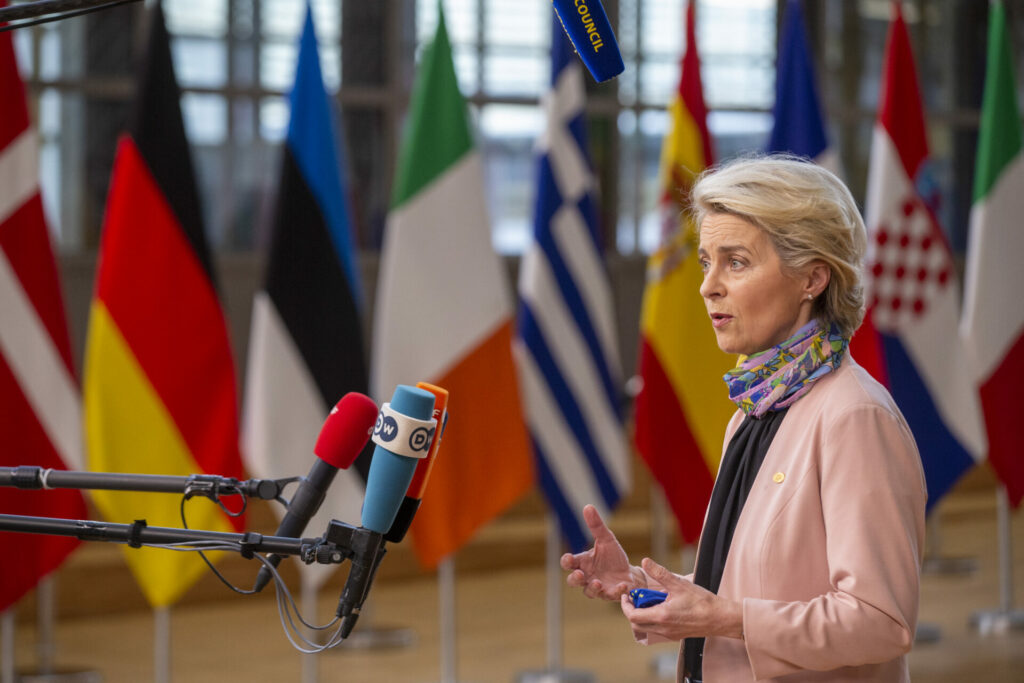The European Commission is set to present a controversial plan for restoring the EU's economic competitiveness to Member States on Wednesday, as soaring energy costs and US and Chinese protectionism continue to threaten Europe's industrial base.
In a 17-page draft policy document entitled "A Green Deal Industrial Plan for the Net-Zero Age", which was seen by Le Soir, the Commission advocates a host of contentious policies, including a "simplification" of regulatory standards, the establishment of a European Sovereignty Fund to jointly finance European investments, and the relaxation of state aid rules for green projects.
This latter proposal, in particular, is strongly opposed by smaller European countries, which fear that it would further entrench the economic dominance of France and Germany. Both countries have spent hundreds of billions of euros over the past year to protect their citizens and industries from high inflation and spiralling energy costs.
In a recent interview with l'Echo, influential Belgian businessman and Etex CEO Bernard Delvaux dismissed "the idea of a relaxation of the state aid rules" as "amount[ing] to telling Germany and France that they can continue to do what they are doing", and also suggested that a European Sovereignty Fund would not be able to provide sufficient assistance to European industry in the short term.
"This fund will not produce its effects until ten years from now," Delvaux explained. "This is not an answer to the problems that we will encounter in the short term in countries that are not able to massively help their industry."
The EU's proposals will be discussed at a specially convened European summit on 9-10 February 2023. After receiving feedback from EU Member States, the Commission will introduce an amended version for discussion at an ordinary EU Summit at the end of March.
Will Europe deindustrialise?
Delvaux is not the only individual to have sounded the alarm over the present dangers faced by Europe's industry. Indeed, EU Commissioner for the Internal Market Thierry Breton recently labelled the Inflation Reduction Act (IRA) — which provides up to $369 billion in green government subsidies to manufacturers based in the US — an "existential challenge" to Europe, and urged that immediate action be taken to "revert the deindustrialisation process now taking place".
Breton's words have since been echoed by French Economy Minister Bruno Le Maire: "I think it's time for us Europeans to tell our American friends that we are very concerned about the Inflation Reduction Act, and that it could cause the deindustrialisation of Europe."
In remarks that were published on Wednesday, an unnamed "senior EU official" informed Le Soir that companies across Europe are now desperately urging a rapid EU-level resolution to the current crisis: "Some Member States are pleading to carry out impact studies first, but companies know that it is now that investment decisions are taken. This is an emergency."
Related News
- Belgium at 'real risk of deindustrialisation', leading CEO says
- US protectionism poses 'existential challenge' to Europe, say EU leaders
In a recent speech at the World Economic Forum in Davos, European Commission President Ursula von der Leyen admitted that the IRA "raises a number of concerns" for Europe's industry, but claimed that "we have been working with the US to find solutions" and that "our aim should be to avoid disruptions in transatlantic trade and investment".
No such conciliatory words, however, were reserved for China, which von der Leyen condemned for its "aggressive attempts to attract our industrial capacities".
"China has been openly encouraging energy-intensive companies in Europe and elsewhere to relocate all or part of their production," she said. "They do so with the promise of cheap energy, low labour costs and a more lenient regulatory environment. At the same time, China heavily subsidises its industry and restricts access to its market for EU companies."

